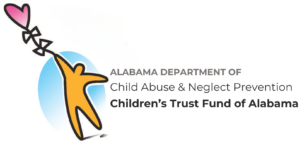If you have been around any 12-step fellowship or treatment center, then it is likely you have heard the ever-so common clichés thrown around by the “old-timers”. Whether it is ‘turning it over to God’, ’living a life beyond my wildest dreams’, ‘one day at a time’, or ‘fake it till you make it’ – these recovery clichés are known to provoke a dramatic eye roll from many newcomers in sobriety. I remember hearing people at meetings spew these cheesy, proverbial lines with no real understanding of how powerful they could be to my recovery. In fact, I was fully convinced I was sitting in the room with a real-life recovery cult.
The truth is, I was completely ignorant of what sobriety looked like because I had no point of reference. I could not put a couple of hours together completely sober, much less a couple of years. Not only that, but the thought of applying these sayings to my recovery seemed so boring and mundane. I was so used to living a life of chaos while running on adrenaline that I thought there was absolutely no way to have fun in sobriety. However, once I opened my mind, I learned that these sayings were more than clichés – these were sayings that were trying to teach me how to accept life the way it is. By accepting life the way it is, I learned how to make light of negative times, have fun doing mundane things, and stop trying to force myself to find happiness. Here are a few popular recovery sayings that revolutionized my recovery.
“Fake it ‘till you make it.”
One of the earliest sayings I heard repeatedly in sobriety was “fake it ‘till you make it”. I remember being absolutely confused as to how this could possibly tie into the “rigorous honesty” that was also a suggestion from my sponsor when getting sober. I’ve come to learn that sobriety is full of both axioms and balance.
For as long as I can remember, I spent my years in addiction medicating, faking happiness, and somehow making it through each day. Meanwhile, I was absolutely dying inside. When I first got sober, I remember not understanding how these people were so happy. I couldn’t understand how they weren’t obsessing over being sober forever and the fear of having to face uncomfortable emotions and situations. I remember the women that I met carried themselves with such dignity and grace but I couldn’t understand how they did it. I remember dreading sitting in a meeting for an hour and pretending to be interested in all of these seemingly unattainable goals, dreams, and lifestyles.

My sponsor explained to me that if I wanted what she had, then I had to do what she does. She went on to tell me that I do not have to like the suggestions she gives me, but the willingness to do them, followed by action, will set a firm foundation for my future. This is how I began to implement these principles in all of my affairs. When I didn’t feel like going to a meeting, I would drive to one with a smile on my face and do it anyway. I began doing things the women I admired did because I saw the fruits of their actions. Most of the time, I hated every second of it. I hated dealing with emotions and being assertive rather than passive-aggressive. I did not want to make amends to the people I harmed, nor did I care to look at all of my glaring defects of character. However, many of the things I faked in early sobriety, became some of the most important principles and values in my life today.
“Turning it over”
Once the drugs and alcohol were removed, I was standing on steady ground – for the first time in my life. I remember initially thinking “okay this is not too bad, I can do this.” It reminds me of the first time I attempted to ice skate, I stood up and, like a baby deer, my legs essentially buckled beneath me and I fell to the ground. I was riding the pink cloud and it was not long before life continued to proceed on life’s terms. It is much easier to exist while temporarily living behind the confines of rehab and having a case manager act as an advocate on your behalf rather than in the real world.
Early in sobriety, I was told that living in sobriety means that you are present to everything. However, I felt as if I was a foreigner in another country, unable to speak the language, and only a road map to help me find my way. I was presented with finding a job, facing people I harmed, working through making amends, all the while trying to also maintain my sobriety. Life showed up and I was like an infant with absolutely no idea of how to deal with even the simplest of tasks. There came a point where I could either keep a tight grip on attempting to control other people, places, and things, while continuing to suffer, or I could turn over the illusion that I could control anyone or anything other than myself. Once I began letting go of this delusion, my life continued to get better. I started accepting the things I could not control, while making the best out of the things that I could.
“Keep it simple”
An alcoholic through and through, I have come to realize that I am one of the most complex types of human beings on the planet. I have spent most of my life in complicated situations, craving serenity but cultivating chaos. Like a tornado, I have ripped through the lives of the people I love the most. The truth is before I got sober I had no idea how to not over-analyze and project my complex assumptions onto the world around me. As you can imagine, this propelled the unmanageable life I was living.

When I first got sober, I remember hearing many people coin this phrase, and I never really understood why. Upon sticking around my sober support, I have come to understand just how detrimental my thinking is. I have a tendency to create total chaos if I am not doing the things I need to do to keep my thoughts and behaviors in check. When I am not sticking to the very basic principles I’ve learned in sobriety, my storyline is based around chaos and uncertainty. When I overthink situations, I find that I create more harm than I do good. I begin to think that I have everything under control. My perfectionism takes over and I overwhelm myself with none of my top priorities. However, I remember this saying often, and suddenly life does not seem so overwhelming. The storm passes, and I am able to do what is right in front of me. Void of the anxiety of the future and at peace with my past, I have learned to take every experience and continue to grow as a happy, healthy, sober woman.
Over the last three years of sobriety, I have learned that my old conception of “fun” was basically synonymous with “trouble.” Before getting sober, I did things that provoked temporary excitement or joy, but I did nothing to establish a healthy and happy life for myself. It was only through opening my mind to the simple suggestions in AA that taught me that fun is more synonymous with peace, contentment, and human connection – not a substance-induced high.









